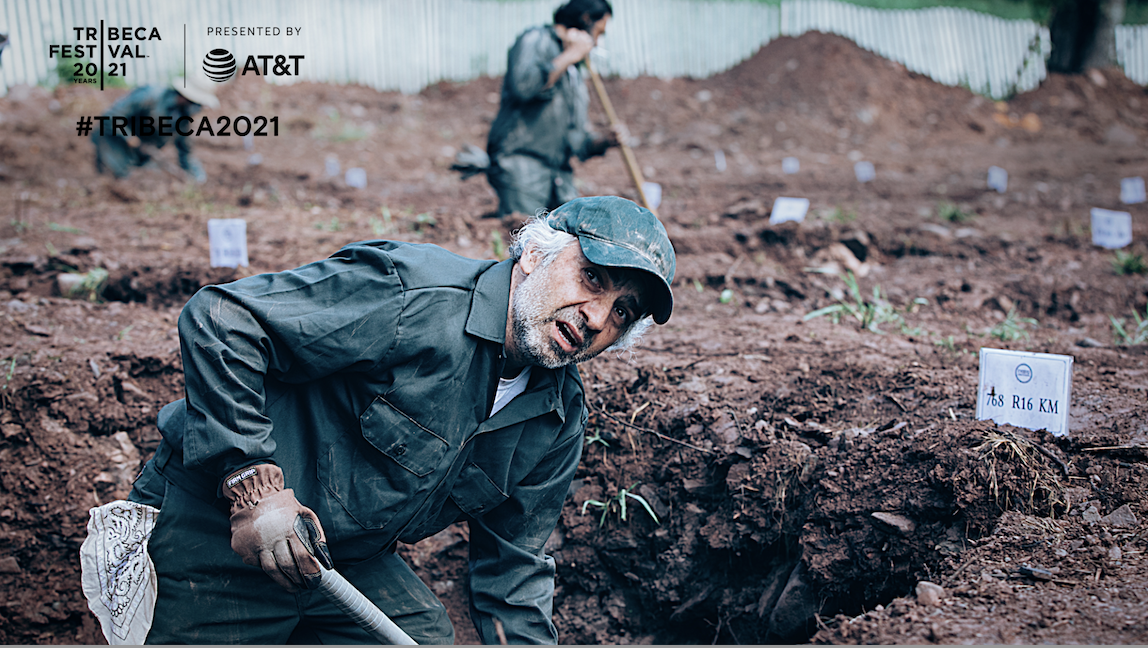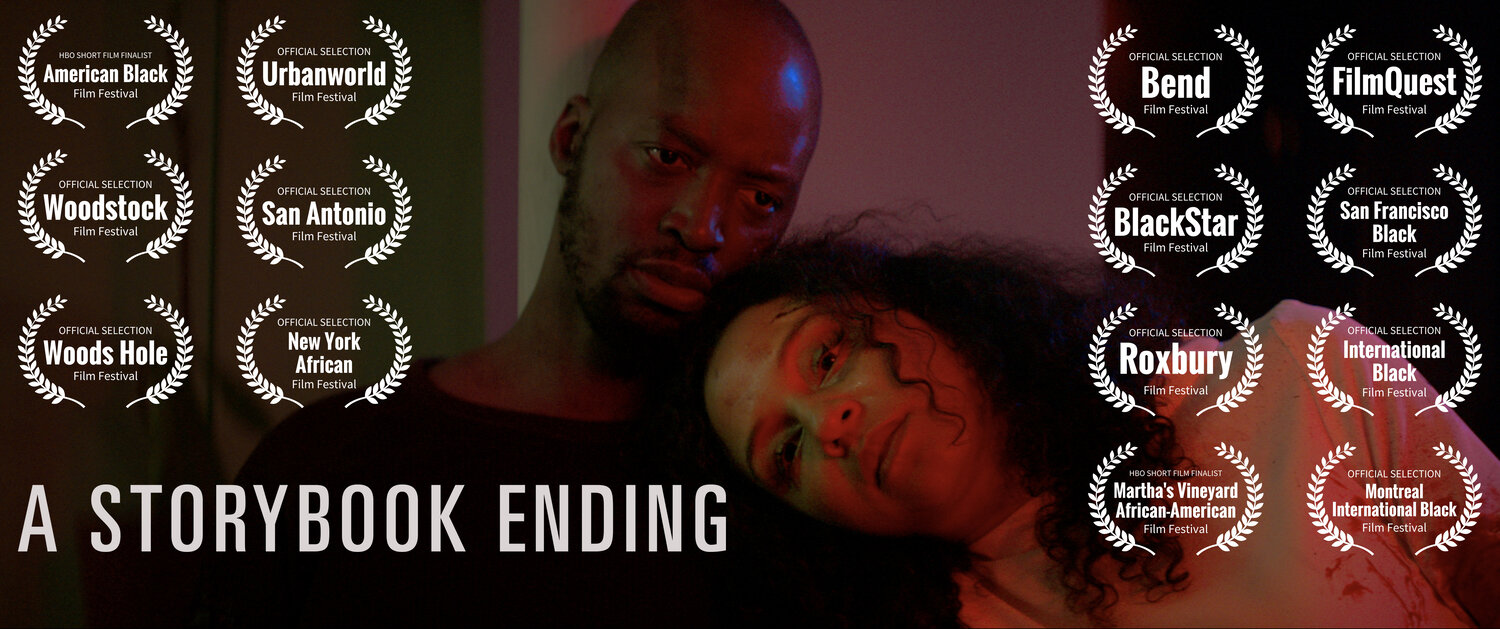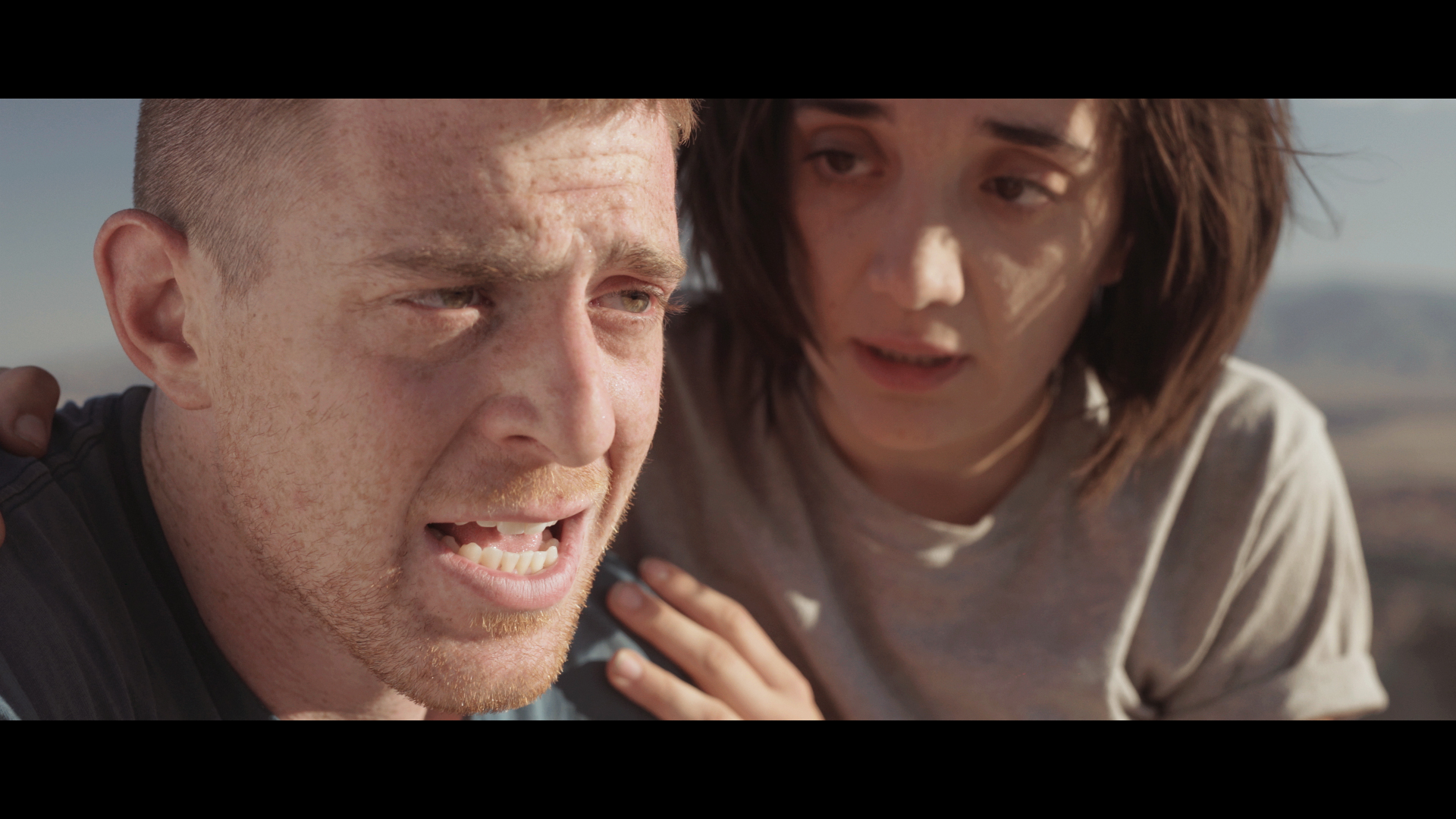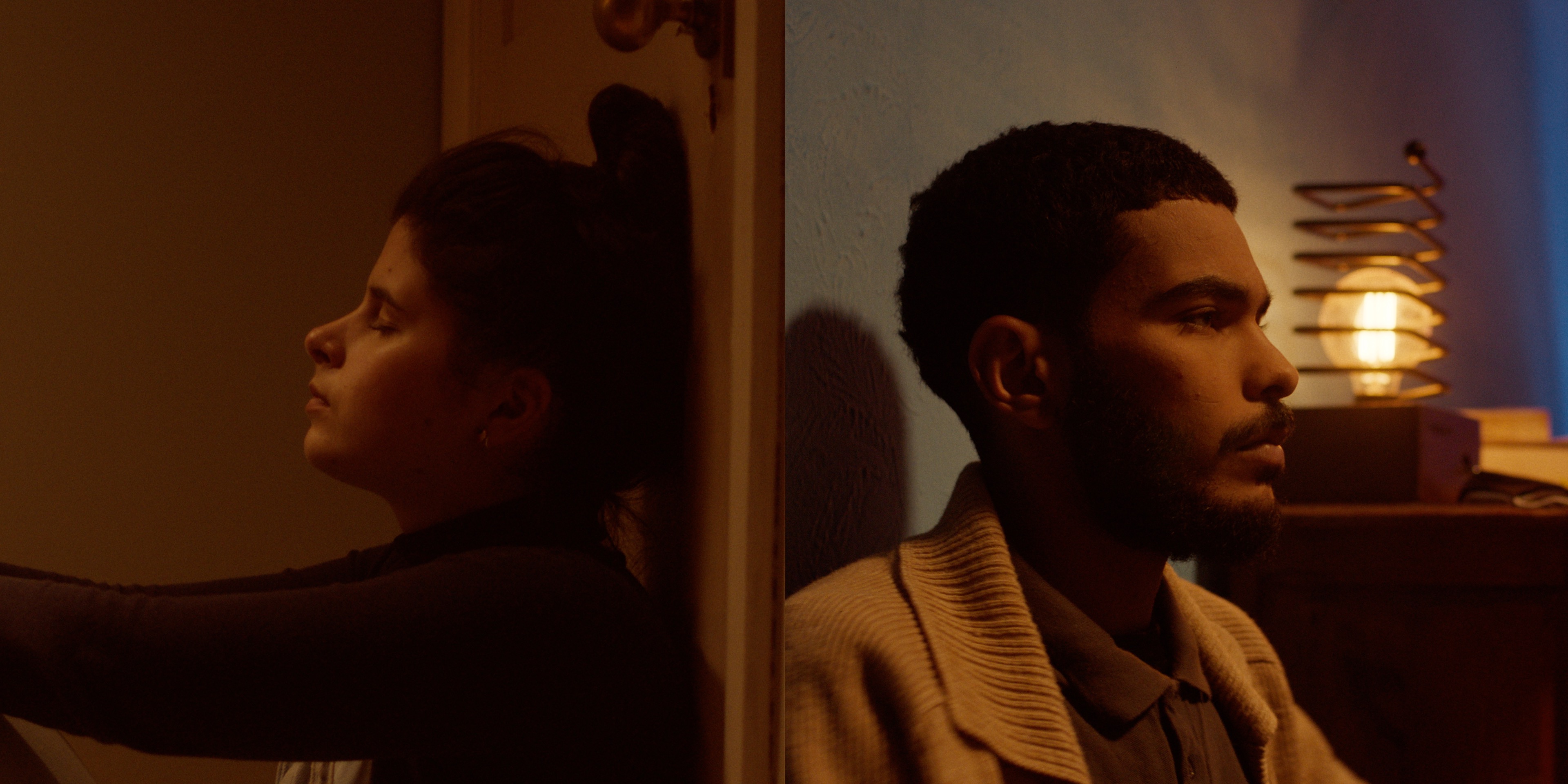Leylak is a 2021 short film, directed by Scott Aharoni and Dennis Latos, and written by Mustafa Kaymak. Aharoni and Latos together are the helm of the production company Duo Entertainment, based in New York, which produced this film, among others. Leylak received its world premiere at the 2021 Tribeca Film Festival, where it won the Special Jury Prize.
The film stars Nadir Saribacak (from acclaimed Turkish film Winter’s Sleep) as Yusuf, a Turkish gravedigger who lives in Queens, New York, with his daughter Renk (Isabella Haddock). Revealing more of the plot would mean spoiling the beauty of the narration, which lies in not disclosing what’s going on in Yusuf’s life and in the relationship with his daughter. In the very first scene he is digging a ditch – one among many, freshly-digged, others – with fellow workers; sweat and tears blending upon his face. Shortly after, he’s coming back home to his daughter, with whom he goes to buy flowers – lilacs – from a market shop. As soon as we see father and daughter coming towards each other, we see the both of them wearing face masks, and we realize that we are in present Covid times. While choosing the flowers, Renk lowers her mask to smell a bouquet of lilacs, in a gesture as simple as it is moving and understandable to everyone: we can see that the flowers are for someone special to her. But the moment is broken by a quarrel with her father, who doesn’t want to accompany her somewhere: he stops a taxi, then changes his mind and let it drive away; Renk gets angry, she walks away; when they come back home she doesn’t want to speak to him and asks her aunt Tulay to accompany her to the hospital the next morning because her father won’t.
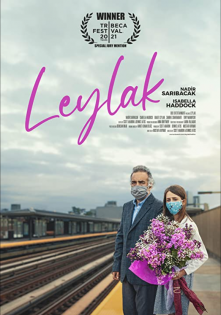
As we realize what is happening, everything we’ve seen before becomes clear, and we get that same feeling of sadness and melancholy that in a certain way we felt while seeing the young girl smelling the flowers on the street, but amplified by the knowledge of who the flowers are for and what has really happened. Yusuf is trying to understand what is better for his daughter, and he tries not to hurt her feelings by sparing her the truth: his love for her is palpable, and it’s what makes the story more poignant. The lilacs that give the film its title are a symbol, a visual image that binds it all together: and in the last scene we see father and daughter, sitting together on the bus, under the sunlight that comes through the window, with a huge bunch of lilacs in their arms. It’s not the only element that recurs: obviously, also the face mask does. And it never seems to be a choice dictated by the need to adapt to the times, since it’s all so natural that it seems just real life – and Yusuf, on the bus, with the mask that leaves his nose uncovered, contributes to making it seem even more realistic. Together, flowers and mask create visual imagery that wants to pay homage to all the ones who died and all the people who suffered for the loss of their loved ones over the last terrible year, and also to all the workers who put their own life at risk – as Yosuf and his family, that sadly fall into all these three categories. And at the same time, the flowers are also a symbol of rebirth, a good omen for the future.
The dedication is remarked also formally at the end of the film, before the end credits. But despite its statement, Leylak is a beautiful piece of filmmaking as it portrays a story that appeals to universal feelings such as love, loss, and family, and it does it with lightness and mastery.

